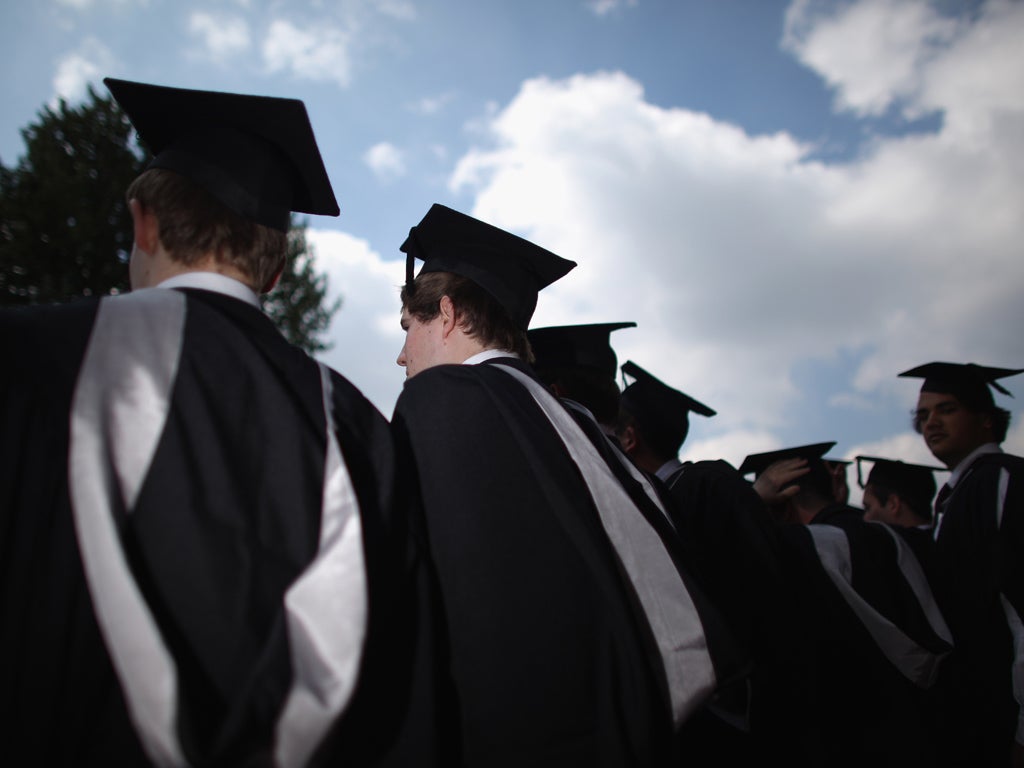Making moves towards a Britain where graduates don't need to go to extreme measures to get a job
There’s little doubt that universities have become more commercial in their outlook

The financial crisis was at its gloomiest when I spotted a young graduate, Esther, wearing a sandwich board outside Holborn station in London.
She couldn’t find work and the board spelt out the university where she had studied, the course, class of degree, and her A-levels.
These were exactly the same as mine; the only difference was that I had graduated in 2000 at a time when it was easy to find work in the career that I wanted. Happily, Esther found employment in public relations as a result of these extreme efforts – it’s just a shame that she had to go to such lengths at all.
Tomorrow the sixth Global Universities Summit kicks-off in Whitehall, an event staged by Warwick University following those in the US, France and Canada. The theme is universities and economic growth.
Vince Cable, Boris Johnson, and International Monetary Fund deputy Nemat Shafik will be there to show the emphasis that politicians are putting on research institutions to help rebuild shattered economies. Senior executives from Google, Airbus manufacturer EADS, and BP will also be speaking, a fair indication that big business wants to foster better relationships with universities in the coming years.
More than ever before, businesses want to ensure that they are getting the right calibre of graduates, that universities help them develop the right skills to be prepared for the world of work. In the UK, tuition fees have meant that prospective students are also demanding better training from their universities and those institutions that fail them will lose out on the best and brightest.
In many ways, universities in this country must now concede that businesses and students are their customers. If they want private sector investment in huge new campuses, universities must ensure that the research is of mutual benefit, while students will choose the university as much as the university selects them.
There’s little doubt that this new relationship is controversial in a country where the quest for knowledge has often been considered to be an end in itself. However, it must also not be ignored how the fast-growing powerhouses of the east have fostered collaboration between universities and major employers for the benefit of their economies.
Take KAIST in South Korea. In 1971, politicians in Seoul were determined to mover from an agrarian economy to a technologically advanced nation and they created this university to drive engineering research. Last year, KAIST had the fifth highest number of patents among universities worldwide, while South Korea has certainly delivered on its economic strategy and is one of the world’s most innovative nations.
There’s little doubt that British universities have become more commercial in their outlook. Big Four accountant KPMG, for instance, sponsors students though courses with Durham, Exeter and Southampton Universities with a curriculum they helped to devised, while Warwick is building a £92m National Automotive Innovation Campus with Jaguar Land Rover.
Hopefully, this will trend will continue and ultimately mean that well-educated graduates will no longer have to don a sandwich job to find work worthy of their qualifications.
Mark Leftly is author of the summit’s pre-event report, Universities and economic growth
Join our commenting forum
Join thought-provoking conversations, follow other Independent readers and see their replies
Comments